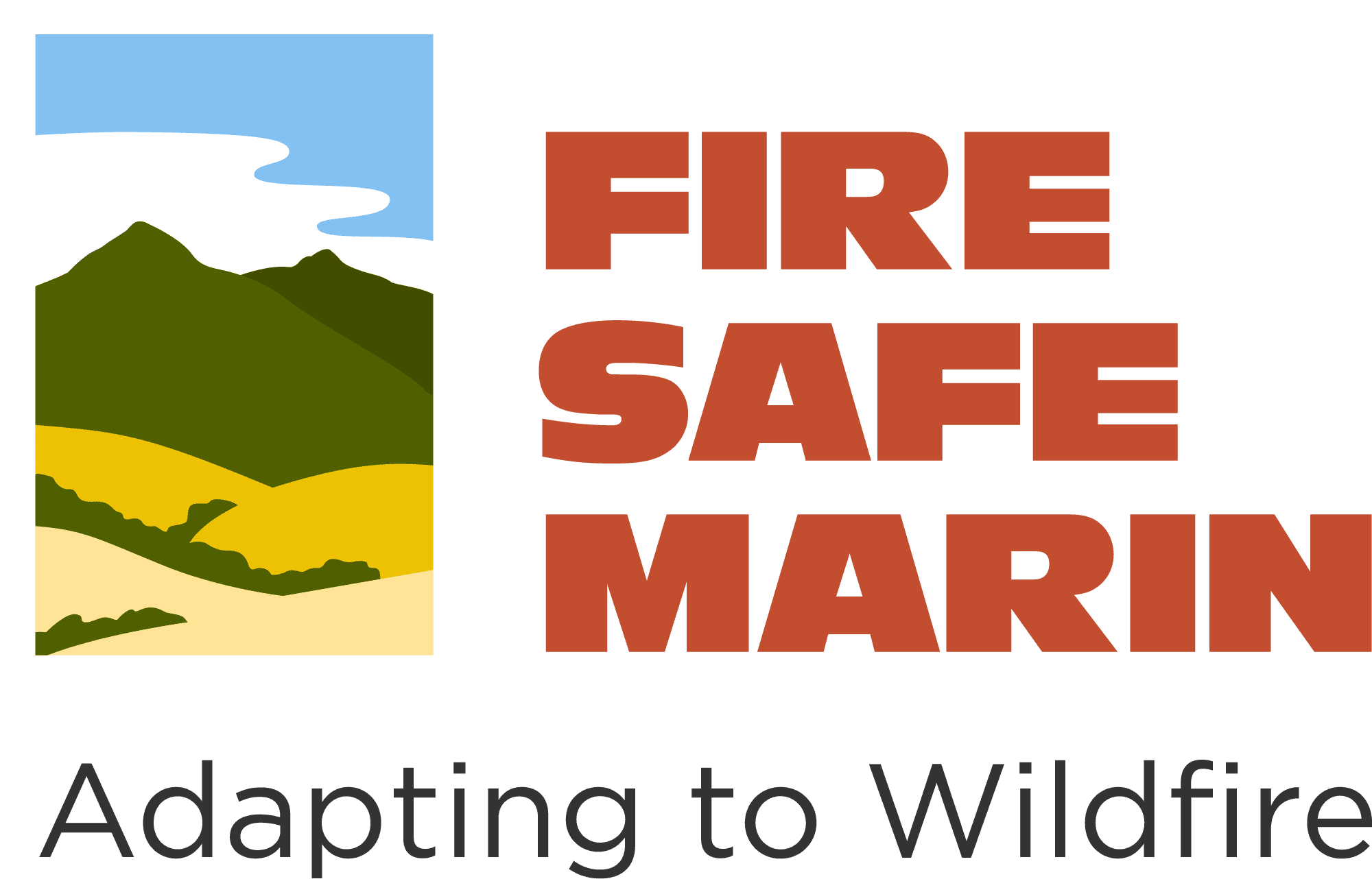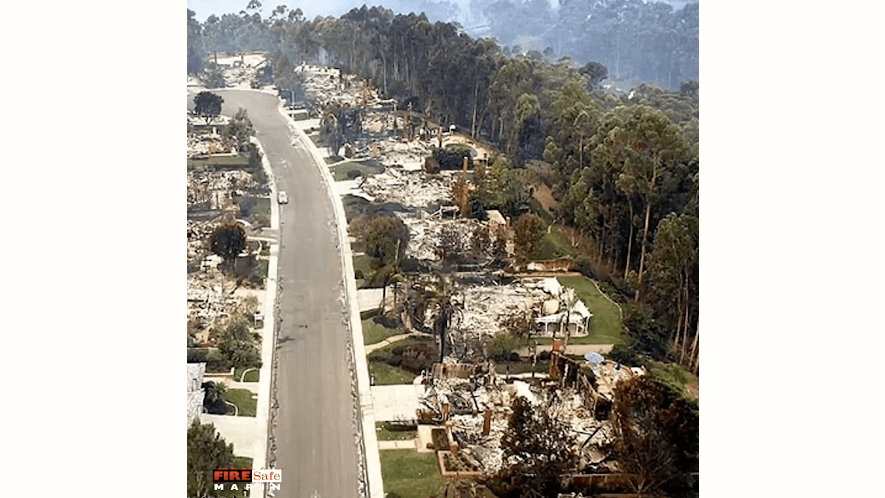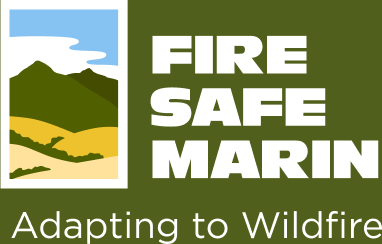Trees are not the issue when it comes to wildfire; maintenance is the answer.
In Marin, we are surrounded by native oaks, buckeyes, and bays, as well as the diversity of ornamental trees in our yards. As we head into winter and a season of gratitude, it is a great time to take a moment to appreciate all that trees provide us; clean air, shade, food, beauty, and awe. We can also start to think about how we can take care of the trees around our homes in an effort to adapt to wildfire.
Trees are often seen as the enemy when it comes to wildfires. While it is true that trees will burn, they are not the biggest danger to your home. Have you ever seen a picture of a neighborhood that has burned and there are still green trees left standing? When there is a fire, embers are the biggest danger because they can ignite flammable material quickly.
However, embers tend to pass through the green canopy and collect on the ground or on rooftops. Deputy Fire Marshall Lynn Osgood gives us insight on the relationship between houses and trees, “Homes catch trees on fire; not the other way around.”
The good news is, there are lots of ways that you can be prepared. By prioritizing the first 5ft around your home, also called “Zero Zone”, you can have the greatest impact on the safety of your home. If there are branches or piles of dead leaves in this zone, then it is time to take out your rakes and pruners and get to work. Here are some easy things that you can do:
- Go look at the trees around your home and make sure they are limbed off of the ground.The recommendation for most trees is 6ft of space from the ground to the lower branches. This ensures that there is no ladder fuel for any fires.
- Allow extra vertical space between shrubs and trees. Lack of vertical space can allow a fire to move from the ground to the brush to the tree tops like a ladder.
- Rake the leaves around your home (prioritize the first 5 feet around your home) and put them in your green bin. It is important not to leave piles of dead or dry vegetation. Even if you have rocks or gravel around your home, remove any leaf litter or debris that has ended up on top of the material.
- Choose a fire resistant mulch for directly around your home. Inorganic mulches such as decomposed granite, gravel, or rocks are recommended.
By taking action to adapt to wildfire, you are reducing the risk of a fire harming the people and places you love.
Learn more strategies on how you can be prepared at www.firesafemarin.org.








